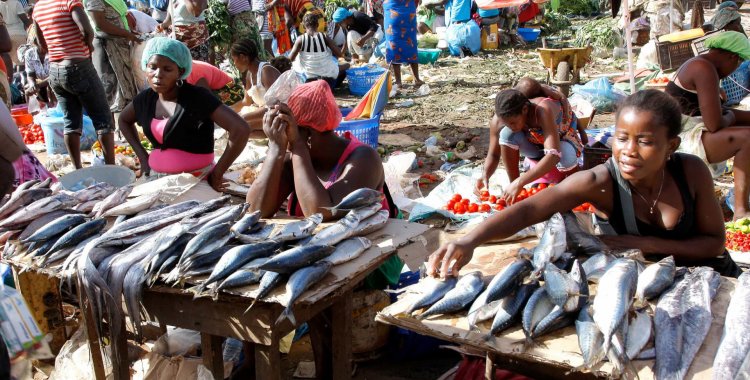This is one of the “arrangements” that Angolans have found to cover the cost of living and which they resort to more and more frequently to purchase food, commented António Estote in statements to the Lusa agency.
“The Angolan population has been one step ahead of other bodies, other economic agents. The 'partner' phenomenon is an arrangement that was carried out from an informal point of view, given the absence of the formal mechanism of installment payments”, said the economist.
According to António Estote, in the most advanced economies, especially for durable goods, there is the figure of installment payments, or installments, but in Angola, “in the face of very structural issues, such as the lack of identification of residence” or the trust itself between agents In economic terms, this formal mechanism is less common.
“And the 'partner' is what the informal market found to ensure that, with the same amount of money, you can buy at least a greater variety of products”, he highlighted.
"[It's about] adapting the informal market and even the educational level of our brothers, finding a solution that has helped, served, to compensate for the loss of purchasing power", he added.
António Estote highlighted that some measures taken by the Government of Luanda in recent times, such as the reorganization of commerce in the São Paulo Market area, from a structural point of view, have had a negative impact on the operators, highlighting that, on the other hand, that it was necessary to organize the market.
“These measures have been sterile to a certain extent, because economic agents find other ways to sell, they start selling at night, very early in the morning or in nearby houses”, he stressed.
The university professor highlighted that “what has limited the scope of more structural public policies has to do with the exchange rate, with the devaluation of the kwanza”, dependent on the price of a barrel of oil, the main pillar of the Angolan economy.
According to António Estote, the scarcity of currency supply in the national market intensified with the payment of debt service, mainly with the suspension of debt service to China, with “a significant part” now channeled towards payments.
“This meant that the Government, as the second largest operator of foreign exchange sales, brought less foreign exchange to the market. In addition to this, a significant part of the oil industry's business is also done in foreign exchange and abroad. The money doesn’t even come to Angola and therefore the shortage of dollars causes the kwanza to depreciate,” he explained.
As final products, intermediates and raw materials are imported, the expert also argued, this has an impact on the prices of food and other goods.
“It's an unavoidable situation, I think, more than adopting very short-term measures, namely trying to get the BNA [Banco Nacional de Angola] to inject money into the market and with that reducing our net international reserves - it was a kind of of filling holes -, we must really look at structuring measures, such as promoting national production in a very coordinated way, in a very incisive way, in such a way that (…) we have sustainability, especially in food products”, he suggested.
António Estote said that prices began to stabilize after the sudden depreciation of the kwanza.
Also, the partial withdrawal of the fuel subsidy “generated some uncertainty in the market”, with economic agents getting ahead of themselves and raising prices.
“Now we are already seeing some prices stabilize or reduce, but there is also a group that continues to increase”, said the economist, arguing that the Government needs to find measures that allow prices to be reduced “in a sustainable, non-administrative way ”.
The university professor argued that authorities need to send a “clear message” about the objectives of public policy measures, regretting this “absence of comfort and a horizon for resolving problems”.







